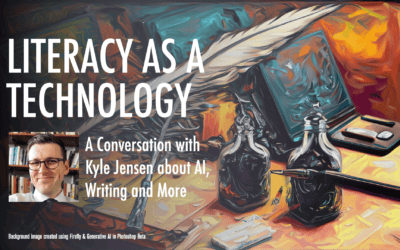The next article in our series around mindfulness, creativity, technology and learning focuses on the work of Dr. Erik Dane. (This is part of a larger series that we been working on now for almost 10 years for the journal TechTrends). The first article set the stage for this sequence, followed by two articles covering the work of Dr. Viviana Capurso, and Dr. Jonathan Schooler.
Dr. Dane is an Associate Professor of Organizational Behavior in the Olin Business School at Washington University in St. Louis, where he studies issues related to mindfulness, mind wandering, and creativity as they pertain to managerial decision making in organizational settings. In particular, he focuses on decision making in organizations in the knowledge sector, including consulting and higher education. His scholarship allows him to “play around with concepts that would seem kind of slippery, or even almost mystical at times, and try to pin them down and make them more amenable to actual systematic exploration and scientific study.” Specifically, he is interested in how to push people out of habitual tendencies and encourage the role that epiphanies can play in decision making. In this he looks at specific states of attention, such as productive mind wandering as well as open and focused attention via mindfulness, to promote awareness, intuition and creativity. These practices, processes, and the ideas they help generate have elements of spontaneity and synchronicity. As Dr. Dane shared: “I’m interested in the production of novelty in seeing the world through novel lenses and breaking out of the force of auto- pilot that we’re so often bound up in.” More in the article (citation and link below).
Gruber, N., Henriksen, D., & Mishra, P. (2022). Creativity, Mindfulness and High-Quality States of Attention at Work with Dr. Erik Dane. TechTrends, DOI: https://doi.org/10.1007/s11528-022-00762-5




0 Comments